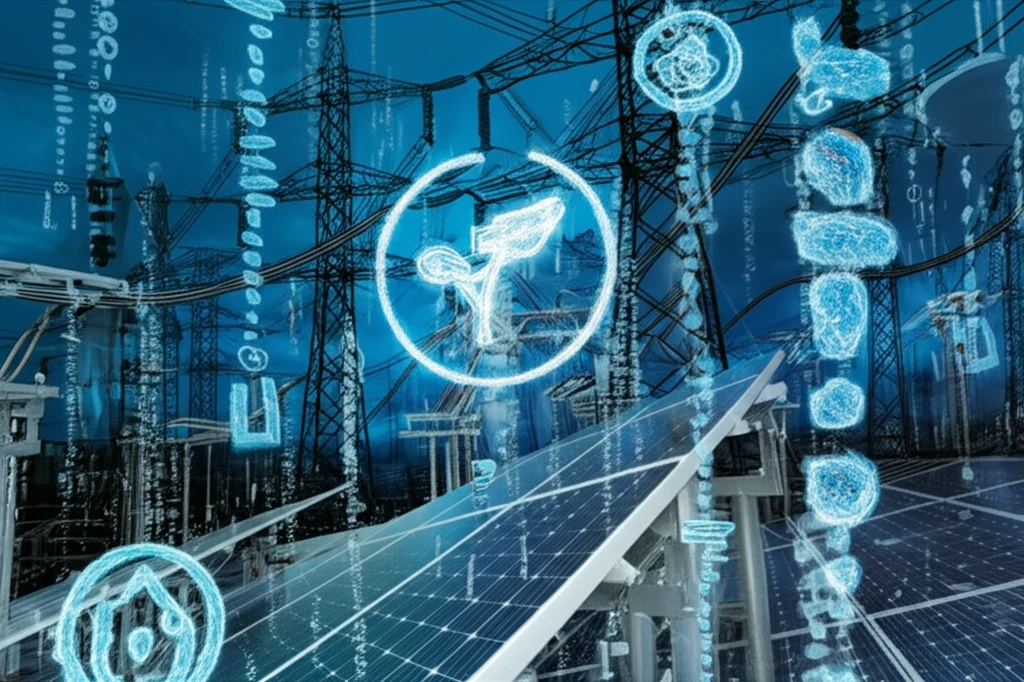
Power Up: How Fuzzy Logic and Solar Energy are Revolutionizing Clean Energy Solutions
"Discover how cutting-edge hybrid active filter technology enhances power quality and efficiency in solar-powered systems."
In today's world, where energy efficiency and sustainability are paramount, maintaining the quality of power is more critical than ever. Power quality, or PQ, refers to the consistency and reliability of electrical power, ensuring that devices and systems operate efficiently and without damage. Issues like voltage sags, swells, and harmonic distortions can wreak havoc on sensitive equipment, leading to costly downtime and reduced productivity for commercial and industrial clients.
Traditional methods of maintaining power quality often fall short, especially when dealing with the increasing complexity of modern electrical grids. The rise of nonlinear loads, such as those from switch-mode power supplies (SMPS) commonly found in electronic devices, introduces significant harmonic distortions into the power supply. These harmonics not only reduce the efficiency of the utility network but also pose a risk to the lifespan and performance of electrical infrastructure.
Enter the innovative solution of integrating fuzzy logic controllers with photovoltaic (PV) systems and hybrid active filters (HAF). This approach not only mitigates common power quality problems but also harnesses the power of renewable energy, creating a more sustainable and reliable power supply. By combining these technologies, engineers are paving the way for a new era of clean, efficient, and stable power solutions.
What is a Fuzzy-Controller-Designed-PV-Based Custom Power Device?

A Fuzzy-Controller-Designed-PV-Based Custom Power Device represents a sophisticated solution to power quality enhancement, integrating several key components to address voltage and current imperfections. At its core, the system combines a three-phase series hybrid active filter (SEHAF) with a photovoltaic (PV) system, enhanced by a DC-DC boost converter. This setup is engineered to minimize issues such as voltage sags, swells, and harmonic distortions, commonly caused by nonlinear power electronic loads.
- Sag and Swell Mitigation: Minimizes voltage fluctuations, protecting sensitive equipment.
- Harmonic Reduction: Decreases distortions in voltage and current, improving power quality.
- Reactive Power Compensation: Manages reactive power to enhance system efficiency.
- Improved Voltage Control: Regulates voltage across the DC-link capacitor, boosting overall performance.
The Future of Power Quality: Cleaner, More Reliable Energy
The integration of fuzzy logic controllers and solar PV systems represents a significant step forward in addressing power quality issues. By effectively managing reactive power, reducing harmonics, and stabilizing voltage levels, these advanced systems promise a future of cleaner, more reliable energy. As research continues and technology evolves, we can expect even greater innovations in power quality solutions, ensuring a stable and efficient energy supply for all.
